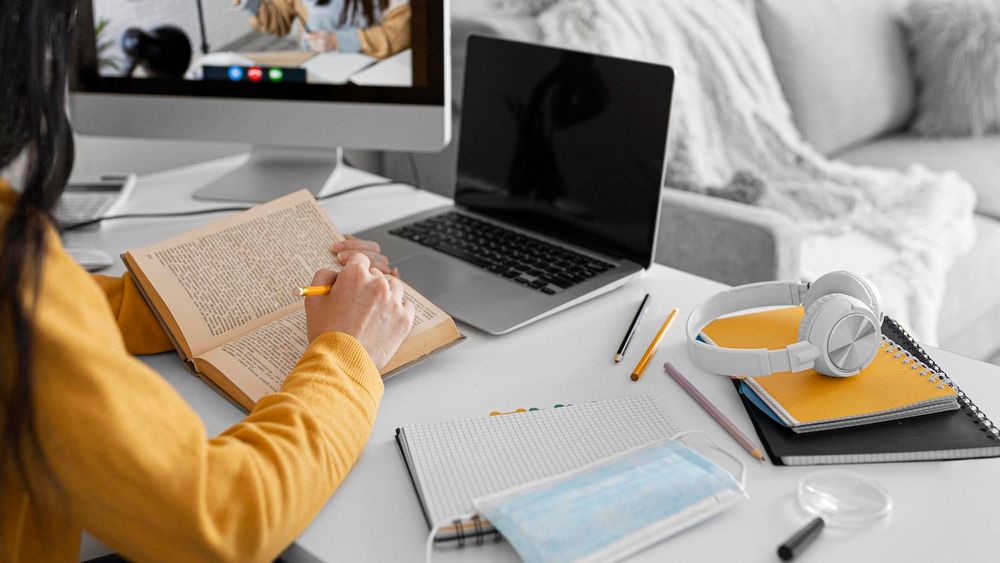The charming film places an focus upon the "art" in artificial intelligence.
The result when you mix the work of an AI image-generating machine, a 98-year-old woman called Lillian, and Harry Potter? It's the result: 'HAIRY POUTER' is a movie with a shorter runtime, by Chris Carboni, a director who blends ever-more entertaining AI-generated imagery with a commentary on the classic book written by a funny nonagenarian.
"Lillian was my mother," says Chris. "She has always enjoyed the company of her children and I've recorded her reviews for about 10 to 15 years."
When AI image generators began to take over the web in mid-2022 Chris saw the stars align for a new project which could profit from his many hours of video recording and aid in understanding the relationship between him and this new technology. "I had my doubts about these machinesthat I wanted to research and I was looking for an opportunity to find out more about the machines," explains Chris. "At the time, I was talking to my grandmotherwho was just finishing her reading of Harry Potter which I had bought her for her birthday and presented to her as a birthday present."
Following that, the film was quickly put together using an efficient crew consisting of "my grandmother as well as my wife and me and our composer, sound designer and the entire team" as well as everything else was (futuristic) all of it. The capabilities of AI continue to evolve at pace of light. We sat down with Chris Carboni in a chat about all things Art and AI.
The image in the video is stunning. What were you using to achieve the result?
Chris: We were using MidJourney when it was its initial release. It was the first thing to use the words of Lillian's without editing and then evaluating the design that the program would create based solely on the excerpts from her interview. We loved the artistic design it came up with after just a few cycles of creating fresh images. Thus, I wrote down certain characteristics of the style of art that were developed out of the photograph it created.
The very first image that was shown to us was Ron sporting his long, wavy hair. It was stunning. The man had his shoulders raised, and it was clear that he didn't wear the typical shirt. The man looked like were a sea-shopper. We had the chance to capture Harry and Ron in a group, when the camera was in position, the two in an embrace while we thought "Oh that's a great moment."
The AI was allowed to think up some interesting interpretations and once we came across one we liked, we pushed it to go along with the thread in order to make sure that it's always fun and simple to follow.
How was it to implement AI into this incredibly human-centric narrative?
Chris Chris I developed this movie because I was slightly nervous about AI with regards to AI. It was an absolute pleasure to use it for this movie. I think this would be a great use-case in this particular case, because AI was used in the film. AI is crucial to the overall story.
That's what makes it interesting, exciting and memorable. The project was about the interesting, but uncomfortable connection between AI and human beings. This was not a project that we did not choose to invest in illustrators, but instead tried to make use of AI instead. It was a story where the use of artificial Intelligence formed the foundation of the narrative.
What are your thoughts on AI becoming a creative force?
Chris Chris Chris Chris: There's certainly something intriguing in this. It's also becoming more challenging as the generators have become extremely popular. Generators are now unleashed in full and have been extended to every one of these situations. The topic has grown quite a bit more complex than it once was for me personally in terms of my perception and understanding of the topic.
Any person working in the creative field should consider the implications of this change on their work, and adjust to the fact the fact that changes are likely to occur. As a result, there will be opportunities for working on innovative and exciting projects. It could result in the automation of many of the artwork we enjoy. That makes me angry, if you're truthful. I'm worried about the value of art declining, and eventually becoming costlier in the meantime.
Do you believe that this technology might be useful to perform your work later on?
Chris Chris: I'm a huge lover of using AI for improving my email and serve as a personal assistant adept at answering questions, explaining complicated concepts, and performing repetitive tasks. When it comes to creativity, however I'm not quite sure I'm completely understanding. It isn't my intention to apply the process in a manner which would substitute human talent within my own group. I believe that the results aren't as great.
The majority of the work that we carry out relies on collaboration with coworkers. Everything from beginning to end making use of AI is based on inputs coming from the mind of a user. In some cases that might be an excellent thing, but most times, the creations can be assisted by an expert team, who collaborate with each bringing their own experience and unique insights to the mix.
The most effective uses I see are for developing ideas early and starting the process of creativity. This can be utilized to get funds raised for an idea and displaying ideas in the beginning in order to establish the beginning. Animation, however, is crucial to have complete control over every aspect of the scene to produce an original and imaginative motive. The level of control required will likely be coming soon, but it's not too far off.
The post was published on here
Article was first seen on here
